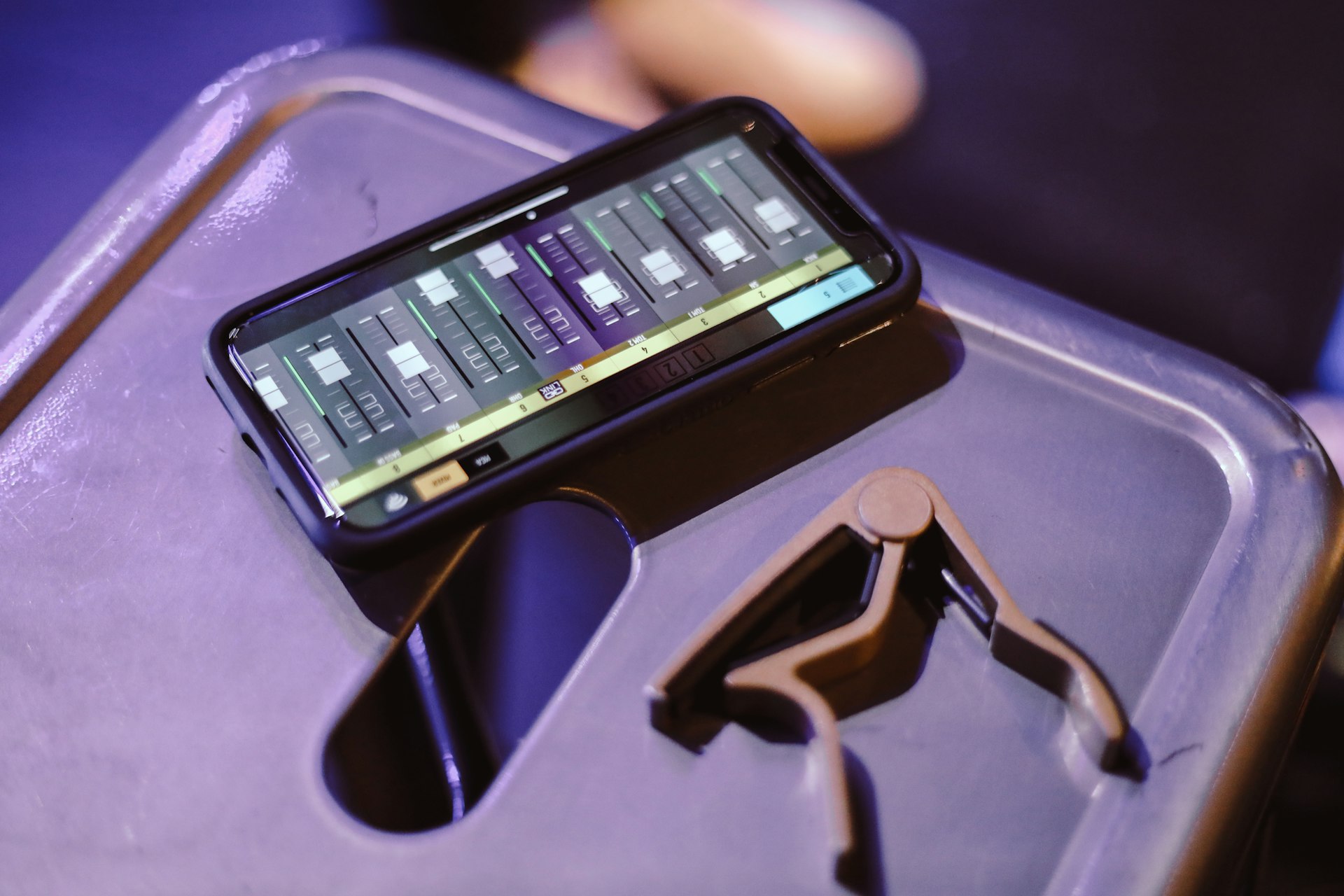How Artificial Intelligence is Transforming Automotive Manufacturing: Opportunities, Challenges, and Next Steps

Photo by Roshni Sidapara on Unsplash
Introduction: The Arrival of AI in Automotive Manufacturing
Automotive manufacturing is undergoing a seismic transformation driven by artificial intelligence (AI). No longer limited to simple automation, AI now acts as the central nervous system of the modern factory, enabling smarter, more connected, and highly efficient production environments. Automakers worldwide-ranging from industry giants like BMW, Toyota, and General Motors to innovative suppliers-are investing heavily in AI-driven technologies. These advancements are not just increasing productivity and quality but are also shaping the cars we drive and the way manufacturers operate in a dynamic market. [1]
AI-Powered Automation and Robotics: Smarter Production Lines
AI-powered automation is revolutionizing factory floors. Unlike traditional robots that followed pre-programmed routines, today’s AI-driven systems can learn, adapt, and optimize in real time. This shift is known as “cognitive automation,” where entire production ecosystems-from initial design to assembly and quality control-become intelligent and self-optimizing. [1] For example, automakers like BMW have reported over 20% efficiency gains by deploying AI-enabled robots for welding, painting, and assembly. [4]
To implement such systems, manufacturers typically start by identifying repetitive, high-precision tasks and integrating machine learning-driven robots equipped with advanced sensors and vision systems. Ongoing monitoring and iterative model training help these robots continuously improve. While initial setup and integration can be challenging, the long-term benefits include higher throughput, reduced error rates, and less unplanned downtime.
Alternative approaches include phased adoption-beginning with pilot projects in specific production cells-and leveraging partnerships with technology providers specializing in industrial AI.
Quality Control and Predictive Maintenance: Ensuring Reliability
One of the most immediate impacts of AI is in quality assurance. Using computer vision and deep learning, AI systems can inspect components for microscopic defects in paint, welds, or alignment that would be invisible to the human eye. [3] This reduces the incidence of costly recalls and warranty claims, delivering safer, more reliable vehicles to consumers.

Photo by carlos aranda on Unsplash
Predictive maintenance is another area where AI excels. By analyzing real-time data from machinery, AI can forecast potential equipment failures before they happen, minimizing unscheduled downtime and reducing maintenance costs. Manufacturers often implement predictive maintenance by installing IoT sensors on critical equipment, feeding data into AI models that can identify patterns linked to wear and failure.
Manufacturers interested in deploying these solutions should consult with industrial automation and AI analytics providers. Many leading industrial companies offer assessments and pilot programs to help identify high-impact use cases within existing operations.
Supply Chain Optimization: Resilience and Agility
AI is enabling automotive manufacturers to respond to market volatility and complex global supply chains with greater agility. By analyzing vast datasets-including market trends, weather patterns, and real-time logistics information-AI-driven forecasting tools help optimize inventory levels, reduce material waste, and prevent bottlenecks. [3]
For example, General Motors reportedly cut production waste by 30% through AI-powered supply chain optimization. [1] Automakers seeking to leverage AI in their supply chain should begin with a comprehensive digital inventory of their logistics processes, then prioritize areas with frequent disruptions or high costs. Collaboration with established supply chain technology firms or consulting with independent experts can accelerate the adoption process.
While the integration process can be complex, using modular AI applications and cloud-based analytics services can reduce implementation time and risk.
Personalized Vehicle Design and Enhanced Customer Experience
AI is not just transforming factory operations-it is also reshaping vehicle design and the customer experience. AI-powered algorithms can analyze consumer preferences, enabling manufacturers to offer more personalized vehicle options and in-car features. [4]
For instance, Hyundai has integrated predictive AI systems that detect potential vehicle maintenance issues, while Volkswagen uses ChatGPT-powered voice assistants for seamless in-car control. [5] This shift toward software-defined vehicles allows for continuous updates and customization, enhancing long-term value for car owners. To explore these innovations, consumers can follow updates from major automakers and technology partners, as most new features are highlighted in official press releases, product launches, or automotive trade shows.
For businesses interested in implementing similar AI-driven customization, the process usually starts with customer data collection (with appropriate consent), followed by integration of AI analytics platforms to interpret this data and suggest new features or improvements.
Technical Innovations: Edge AI, Digital Twins, and Federated Learning
Key technical advances are accelerating the evolution of automotive manufacturing. Edge AI processes data locally within the factory, enabling real-time decision-making for robotics and predictive maintenance while reducing latency and data privacy risks. [2]
Digital twins-virtual models of physical production lines or entire factories-allow for rapid simulation and optimization of manufacturing processes without disrupting actual operations. Federated learning enables multiple plants to collaboratively train AI models while maintaining data privacy, supporting smarter, more coordinated decision-making across global operations.
To leverage these technologies, manufacturers may need to invest in modern IT infrastructure, advanced sensor networks, and partnerships with AI research centers. Many industry leaders, such as Tesla and Toyota, have established dedicated AI research units to develop and deploy these cutting-edge solutions.
Challenges and Solutions in AI Adoption
Despite its promise, implementing AI in automotive manufacturing presents challenges. These include data integration complexities, the need for skilled personnel, cybersecurity risks, and the initial capital investment required. Companies can mitigate these risks by:
- Starting with small-scale pilot projects to demonstrate value before scaling up.
- Partnering with established technology vendors or academic institutions for expertise and support.
- Investing in workforce training to build internal AI competencies.
- Adopting industry best practices for data security and privacy.
Government incentives and industry consortia may be available to help offset costs or provide guidance-interested organizations should consult official economic development agencies or trade associations in their region for current programs and eligibility.
Practical Guidance: How to Access and Implement AI Solutions
For manufacturers and suppliers seeking to implement AI-driven manufacturing, the following steps are recommended:
- Conduct a comprehensive assessment of current production processes and identify high-impact use cases for AI (such as quality control, predictive maintenance, or supply chain optimization).
- Engage with reputable industrial automation and AI technology providers. Many offer consultations, pilot programs, and case studies to help guide deployment decisions.
- Invest in employee training and change management to ensure successful adoption.
- Monitor industry publications, attend trade shows, and participate in workshops hosted by major automotive and technology firms to stay updated on the latest advancements.
If you are a supplier or small manufacturer, consider reaching out to your industry association for introductions to technology partners or collaborative pilot opportunities. For consumers interested in AI-powered vehicle features, review official automaker websites and product announcements.
Key Takeaways and Future Outlook
Artificial intelligence is fundamentally reshaping automotive manufacturing. Its application across production lines, quality assurance, supply chains, and vehicle design is driving unprecedented gains in efficiency, flexibility, and innovation. As AI technologies continue to mature and new capabilities emerge, the automotive industry is poised for even greater transformation-benefiting manufacturers, suppliers, and consumers alike. Staying informed and taking proactive steps to explore or adopt AI-driven solutions will be essential for organizations aiming to remain competitive in the years ahead.
References
- [1] Skywork (2025). The 5 Most Significant AI Applications in the Automotive Industry.
- [2] Automotive Manufacturing Solutions (2024). How AI is Transforming Automotive Manufacturing.
- [3] S&P Global (2025). AI in the Automotive Industry: Trends, Benefits & Use Cases.
- [4] Hitachi (2025). The Future of AI in the Automotive Industry.
- [5] IMD (2025). AI Maturity in the Automotive Industry.
MORE FROM gowithdeal.com













